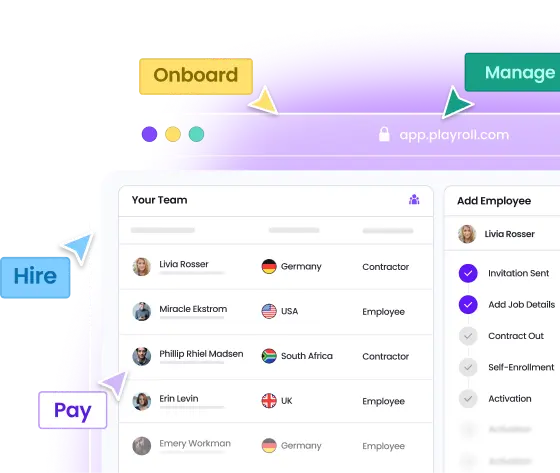What Are the Standard Working Hours in South Africa?
In South Africa, the Basic Conditions of Employment Act (BCEA) sets clear guidelines to ensure fair working hours for employees. Here's an overview:
- Employees aged 15 to 18: Limited to 8 hours per day and 40 hours per week.
- Employees aged 18 and older: Permitted to work up to 9 hours per day (excluding lunch breaks) and 45 hours per week.
- Meal Breaks: Employees working more than 5 continuous hours are entitled to a meal break of at least 1 hour. This can be reduced to 30 minutes by mutual agreement.
- Typical Working Hours: Generally, the workday runs from 9:00 AM to 5:30 PM, Monday through Friday.
Maximum Working Hours in South Africa
The BCEA caps standard working hours to 45 hours per week. Employees cannot be compelled to work beyond this limit unless they voluntarily agree to overtime. Overtime is capped at 3 hours per day and 10 hours per week. Exceeding these limits can lead to legal consequences for employers.
Industry-Specific Exceptions
Certain industries have tailored working hour regulations:
- Healthcare: Shift work is common, with varying hours to ensure 24/7 patient care.
- Transportation: Regulations accommodate long-distance travel and irregular hours.
These sectors may have agreements that differ from standard working hours, but they must still comply with overarching labor laws.
Managerial and Exempt Employees
Employees earning above the BCEA earnings threshold of R261,748.45 per annum (effective from 1 April 2025) are not automatically entitled to the BCEA's provisions on working hours, overtime, meal intervals, and rest periods. However, this does not mean they can be forced to work unreasonable hours without compensation. Such terms should be clearly outlined in their employment contracts.
Statutory Full-Time Working Hours in South Africa
Full-time employment is typically defined as working 40 to 45 hours per week. This standard applies across most industries, ensuring consistency and fairness in employment practices.
Overtime Regulations in South Africa
What Counts as Overtime in South Africa?
Overtime refers to any work beyond the standard 45-hour workweek. Employees must agree to work overtime, and it should be compensated accordingly.
Maximum Overtime in South Africa
The legal maximum is 3 hours per day and 10 hours per week. Employers exceeding these limits without proper compensation may face legal actions.
Overtime Payout Rates in South Africa
Overtime pay is calculated as follows:
- Standard Overtime: 1.5 times the normal hourly rate.
- Sunday/Public Holiday Work: Double the normal hourly rate.
Employers and employees can agree to compensatory time off instead of monetary payment, but this must be mutually agreed upon.
Rest Periods and Breaks in South Africa
Employees are entitled to:
- Meal Breaks: At least 1 hour if working more than 5 continuous hours. This can be reduced to 30 minutes by agreement.
- Daily Rest Periods: A minimum of 12 consecutive hours between shifts.
- Weekly Rest Periods: At least 36 consecutive hours, typically including Sunday.
Employers must ensure these rest periods are adhered to, promoting employee well-being and compliance with labor laws.
Night Shifts and Weekend Regulations
Night work is defined as work performed between 6:00 PM and 6:00 AM. Employees working night shifts regularly (more than once a week or at least five times a month) are entitled to:
- Compensation: A night shift allowance or a reduction in working hours.
- Health and Safety: Information about potential hazards and the right to medical examinations.
- Transportation: Provision of transport between the workplace and the employee's residence.
For weekend work, particularly on Sundays, employees are entitled to double their normal wage rate or compensatory time off, as agreed upon.
Disclaimer
THIS CONTENT IS FOR INFORMATIONAL PURPOSES ONLY AND DOES NOT CONSTITUTE LEGAL OR TAX ADVICE. You should always consult with and rely on your own legal and/or tax advisor(s). Playroll does not provide legal or tax advice. The information is general and not tailored to a specific company or workforce and does not reflect Playroll’s product delivery in any given jurisdiction. Playroll makes no representations or warranties concerning the accuracy, completeness, or timeliness of this information and shall have no liability arising out of or in connection with it, including any loss caused by use of, or reliance on, the information.
.svg)
.svg)
.svg)





.svg)



.png)











.webp)









.svg)